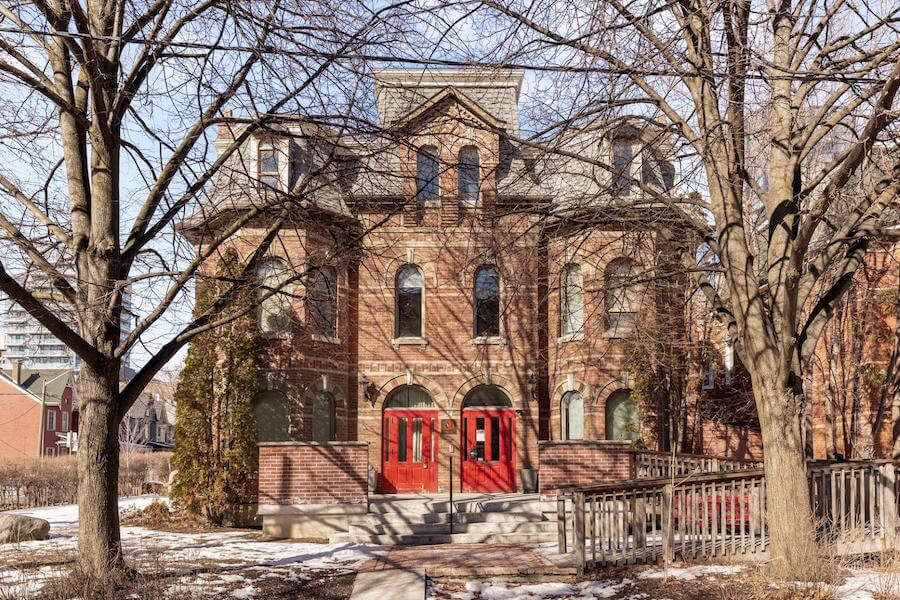
Black Lives Matter Canada is moving its community-focused art and activism centre Wildseed to a new home this winter.
The activist organization just signed the papers on the purchase of 24 Cecil, a three-story 10,440-square-foot Victorian house near Chinatown. The first location of Wildseed opened in March 2020, a week before the pandemic began, but the new location is substantially larger than that 1,600-square-foot industrial space on Geary.
The major win for BLM is that the group owns this new building and that makes all the difference in creating longevity for their work.
“I’m hoping that [Wildseed] represents a sense of sustainability and permanence of Black radical organizing, Black radical artmaking and Black radical creation in the city, because movements definitely have their ebbs and flows,” said Wildseed executive director Jessica Kirk in a phone interview.
“By having a space that’s here to stay, we’ll be able to create conditions that are a lot more sustainable for Black people across the country.”
The organization secured funding to purchase the property through a mix of public and private donations raised over the past five years, as well as a grant from the larger Black Lives Matter Global network. The property was listed for $8.2 million.
Mike Layton, the city councillor for the area, has announced that Toronto will provide BLM with $250,000 for future programming initiatives.
Since Wildseed launched last year, the programming has remained virtual but the organization is looking forward to hosting exhibitions and public performances as early as spring 2022.
Originally, the curators planned on flying in artists from as far as Munich, Germany, to participate in a 20-month fellowship run out of the Geary location. That fellowship has so far only existed online because of the pandemic, but they plan to exhibit work from the visual artists and host performances from the musicians, DJs and dancers in the new building.
With almost 9,000 extra square feet to work with, they’re dreaming big. They plan on creating permanent dance studios, recording booths for musicians and podcasters, space for educational and children’s programming, a community kitchen and garden and more.
There will also be open-concept, multi-use spaces that people can book for any requirement and meeting rooms.
The house is in a semi-residential area so they plan on soundproofing the building, which would allow them to host indoor events past 11 pm without having to worry about disturbing neighbours.
Kirk says Wildseed’s offerings will be informed by the community’s needs, whether that be outdoor wedding ceremonies and block parties, album release parties or art fairs. The possibilities are endless and they have no intention of pigeonholing the space to be one exact thing. They also see the potential for collaborative events and outdoor programming with with their neighbours, Greenpeace and United Steelworkers.
Booking fees for artists and creators to rent space will be kept low and accessible.
“Black Lives Matter Canada grew out of folks in Toronto recognizing the need for a national connecting point,” said Kirk. Any BLM chapters from across the country can access and book rooms for free.
“We also are going to be creating a payment system so Black-led grassroots organizations in Toronto get below-market renting costs for the spaces. Finding space is probably one of the most difficult things when you’re just starting out as a grassroots group so we want to make sure that folks are assured that there are safe, affordable, accessible rooms available for them to use.”
The Toronto chapter of Black Lives Matter has a history of mixing artistic practice into their activist work and Wildseed is a natural extension of that. They want to continue the movement beyond protest and create a community hub where new forms of organizing can be born.
“Movements are supposed to sustain themselves and grow over time,” Kirk says. “Having a permanent space allows everybody to grasp onto something that’s tangible and experiment with all of the ideas they have about creating better spaces for our people in the city. Everybody has different ways that they might want to engage with the organizing that has been building up in the city, but not everybody is necessarily comfortable with going to a protest, for example.”












